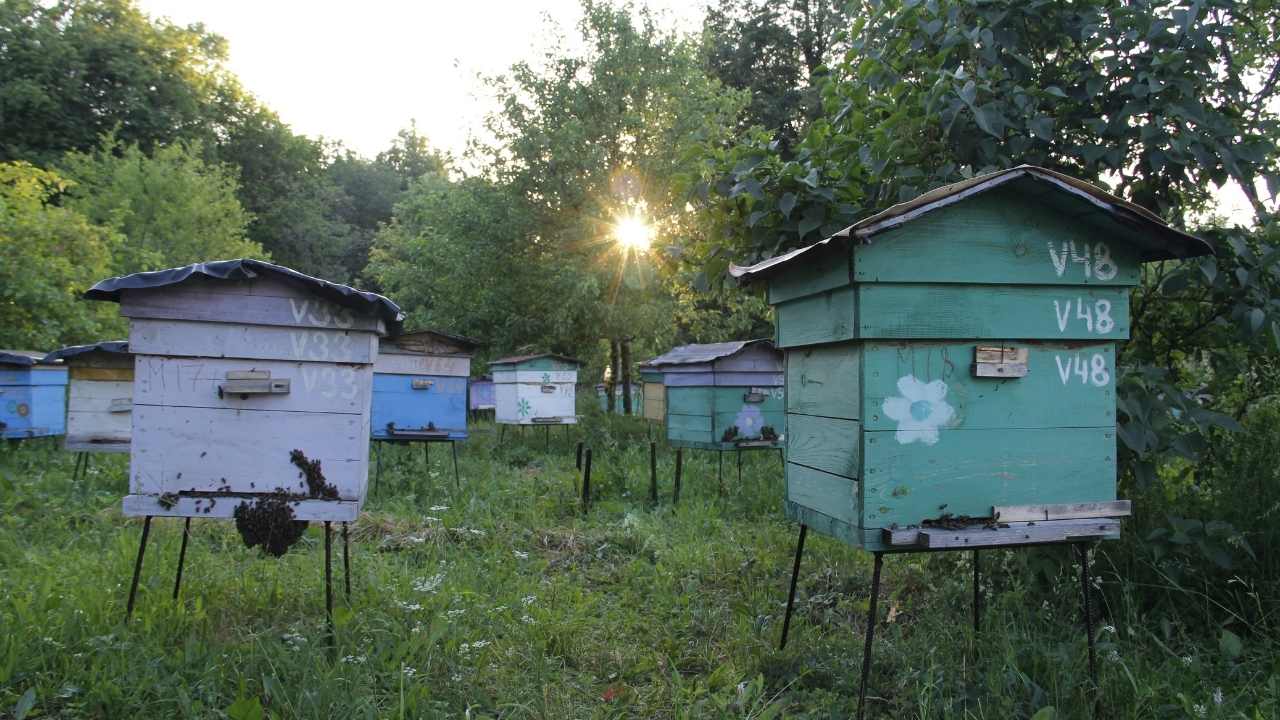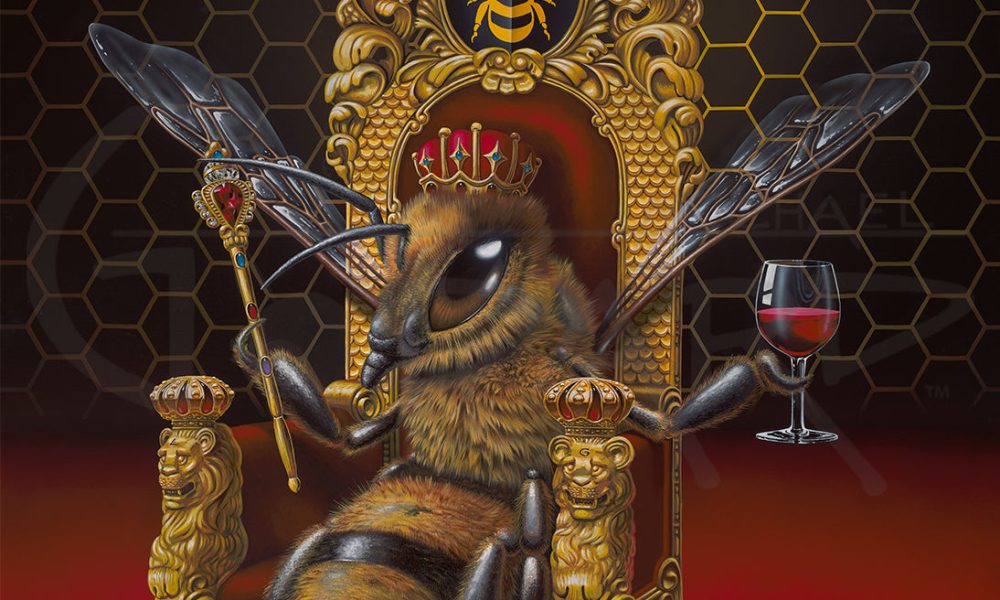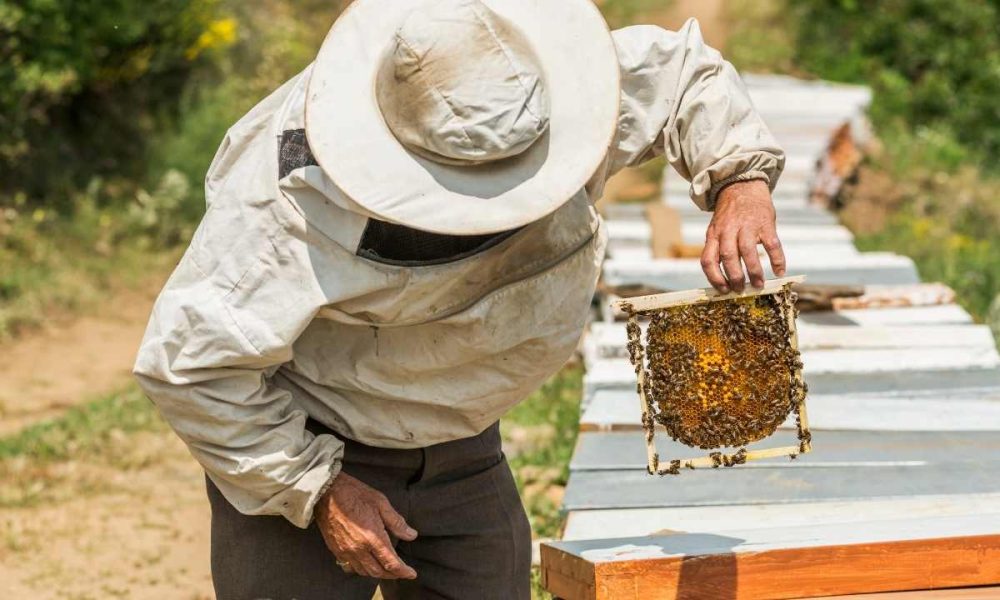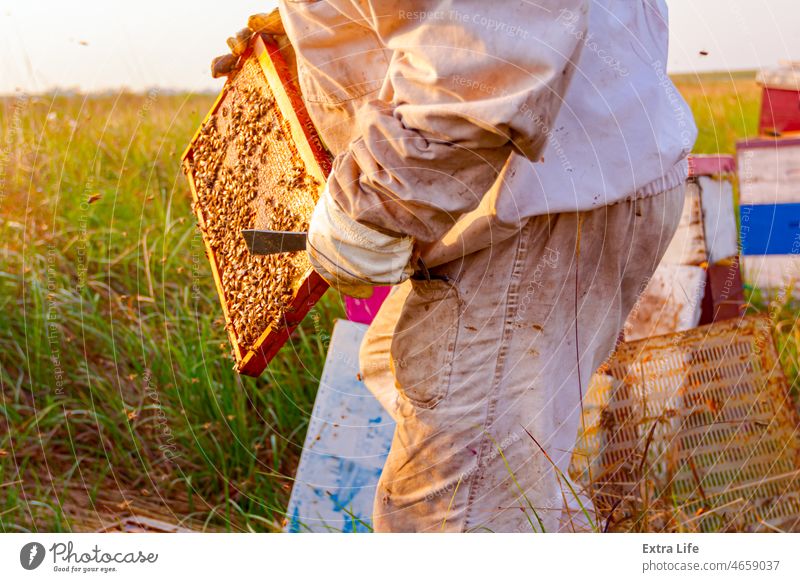
Do you ever stop to think about the tiny creatures that play a crucial role in maintaining our planet’s ecosystem? Bees, for instance, are often overlooked despite their significant contribution to biodiversity. These buzzing insects play a vital part in pollinating flowers and crops, which ultimately lead to the production of food. However, with the increase in urbanization and use of pesticides, bees have experienced a decline in population over the years. But fear not! There is a solution – beekeeping.
Beekeeping has increasingly become popular among environmental enthusiasts as it promotes biodiversity and preserves ecosystems. By taking care of bees and their hives, beekeepers can improve soil health through pollination. Additionally, they help support sustainable honey production while creating an environment that is friendly to bees and other pollinators. This article will delve into the nuances of beekeeping and how it plays an essential role in preserving our planet’s biodiversity.
The Importance of Bees in Our Ecosystem
You might not realize it, but bees play a crucial role in sustaining our environment. Without their pollination efforts, many plants would struggle to reproduce and grow. Unfortunately, the bee population has been declining in recent years due to habitat loss, pesticide use, and other factors. This decline is concerning because bees are responsible for pollinating approximately 75% of crops that make up a large portion of our diets.
The importance of pollination cannot be overstated. It helps create biodiversity by facilitating the growth of diverse plant species, which in turn supports a wide range of animal life. By ensuring plants can reproduce effectively, bees are indirectly helping to preserve ecosystems and maintain natural balance. Given all this importance that bees have on our ecosystem’s health and balance, it’s no wonder beekeeping has become an increasingly popular way to promote biodiversity while also enjoying fresh honey!
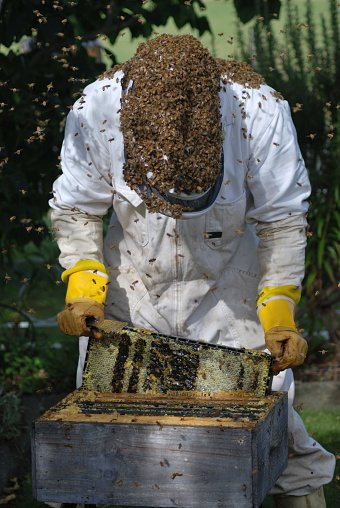
How Beekeeping Promotes Biodiversity
By learning the art of beekeeping, you can contribute to the health and well-being of your local environment in ways you may not have considered before. Beekeeping benefits the ecological balance by promoting biodiversity. Bees are essential pollinators that help plants reproduce and maintain a healthy ecosystem. By keeping bees, you are providing them with a safe habitat where they can thrive and continue their important work.
Beekeeping also helps to preserve plant diversity by ensuring that different types of plants receive adequate pollination. This is especially important for crops that rely on bees for pollination, such as almonds, apples, and blueberries. Additionally, beekeepers often use natural methods to manage their hives, which promotes sustainable agriculture practices and reduces the use of harmful chemicals in our environment. By practicing beekeeping, you are making a positive impact on your local ecosystem and contributing to a healthier planet overall.
As you consider how beekeeping can benefit your local environment, it’s important to also think about improving soil health.
Improving Soil Health
As you delve into the world of soil health, you’ll uncover a hidden universe teeming with microscopic life that nourishes and sustains the plants that grow above. Soil regeneration is critical for maintaining biodiversity in any ecosystem, and beekeeping can play a significant role in improving soil health. Honeybees pollinate flowers and plants, which in turn helps to increase plant diversity and improve soil structure.
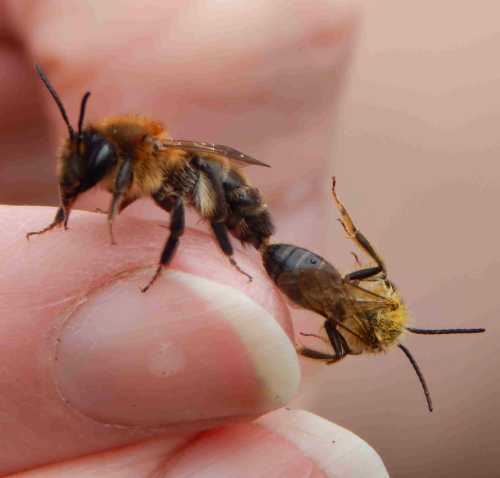
But bees also produce honey, which can be used as a natural fertilizer for crops. By using composting techniques like vermicomposting (using worms to break down organic materials), beekeepers can create nutrient-rich soil amendments to boost plant growth. Additionally, when beekeepers harvest honey from their hives, they often leave behind some of the wax and propolis (a resin-like substance made by bees) which further enriches the soil.
Improving soil health through beekeeping not only benefits the immediate environment but also creates more sustainable honey production methods. With healthy soils come healthier plants, leading to higher yields of nectar and pollen for bees to collect. This approach promotes ecosystem preservation while providing an essential resource – honey – for human consumption.
Sustainable Honey Production
Get ready to taste the sweet rewards of Mother Nature’s bountiful harvest with sustainable honey production, where every drop is a golden nugget of pure, guilt-free goodness. Beekeeping is not just about harvesting honey; it is also about ensuring that the bees are cared for ethically and sustainably. By practicing bee-friendly farming methods and ethical honey harvesting techniques, beekeepers can help preserve the delicate balance of our ecosystems.
Here are three ways that sustainable honey production promotes biodiversity:
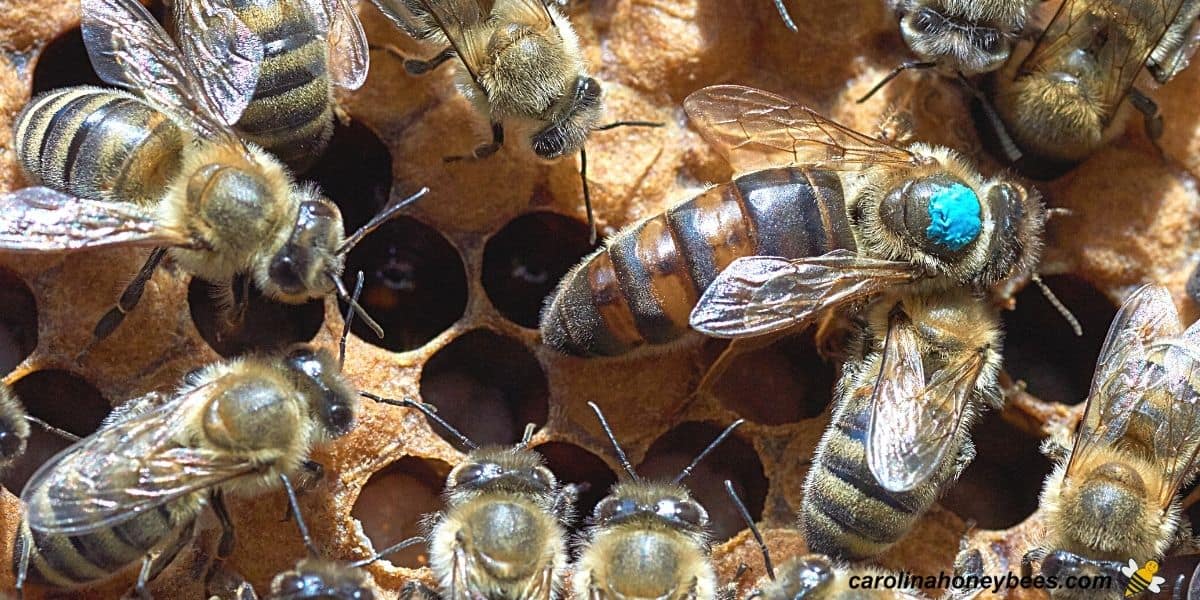
- It encourages pollination: Honeybees play a crucial role in pollinating crops and wildflowers. By keeping bees healthy and happy, we ensure that they continue to pollinate plants and help them thrive.
- It supports local ecosystems: Beekeeping can be an excellent way to support local flora and fauna by providing habitats for native bees. This helps preserve local biodiversity by creating more opportunities for different species to interact.
- It promotes ethical practices: Sustainable beekeeping means treating bees humanely, avoiding harmful pesticides, and ensuring that the bees have access to clean water sources. These practices promote an environmentally conscious approach to agriculture.
By understanding how sustainable honey production benefits our environment, we can take steps towards creating a more bee-friendly world.
Creating a Bee-Friendly Environment
Let’s explore how to make your environment more welcoming to our fuzzy friends by creating a habitat that encourages their health and happiness. One way to do this is by planting pollinator gardens, which provide bees with nectar and pollen-rich flowers to feed on. Bees are attracted to colorful flowers such as lavender, sunflowers, and daisies; so including these in your garden can help create a bee-friendly environment. Additionally, avoid using pesticides or other harmful chemicals in your garden as it can be toxic for bees.
Another way to support urban beekeeping is by providing a safe shelter for the bees. You can purchase or build a hive box where they can live and thrive. Urban beekeeping has become increasingly popular over the years due to its benefits such as providing local honey production and promoting biodiversity in urban areas. By supporting urban beekeeping, you are helping contribute to the preservation of our ecosystem while also enjoying delicious honey!
As we move forward into the future of beekeeping, it’s important to remember that small actions like these can have big impacts on our ecosystem. Let’s continue exploring ways we can support bee populations so that they may continue pollinating plants and contributing towards a healthy planet.
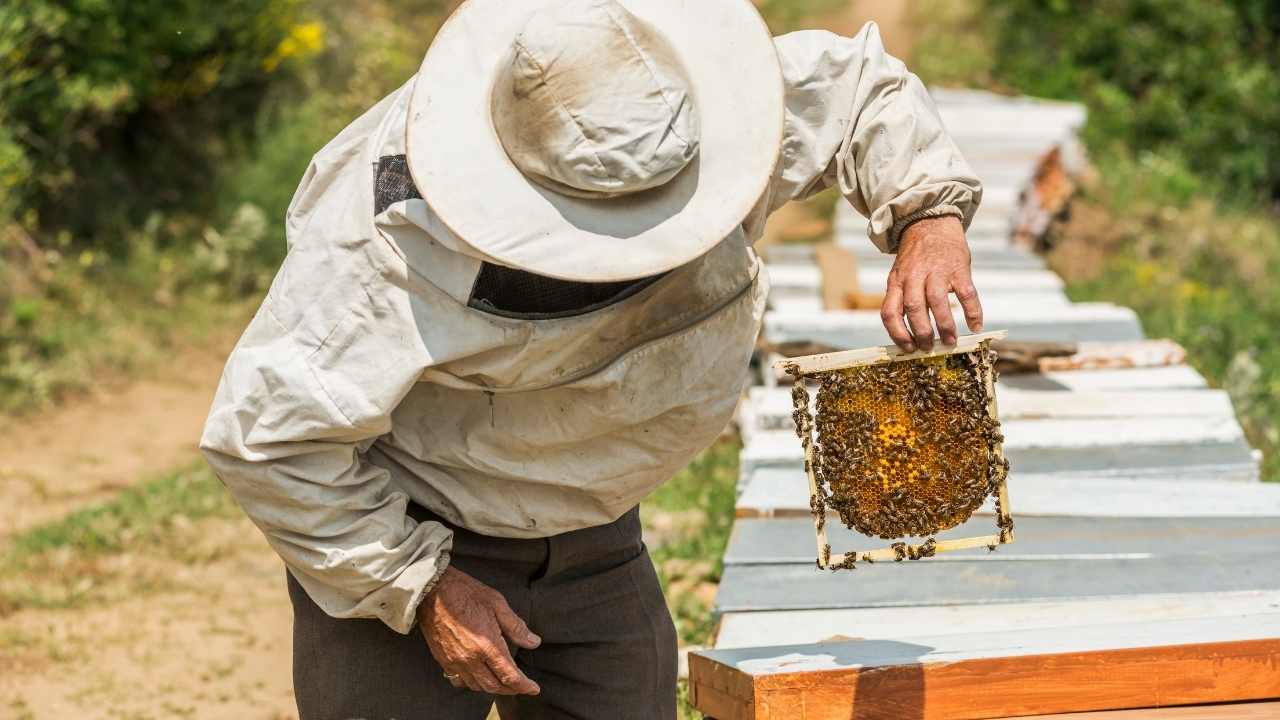
The Future of Beekeeping
As you delve into the topic of the future of beekeeping, there are a few key points to consider. Firstly, the potential impact of beekeeping on ecosystem preservation cannot be overstated. By creating and maintaining bee-friendly environments, we are not only helping to ensure the survival of these important pollinators but also contributing to overall biodiversity. Secondly, community engagement and education are crucial in promoting the value and importance of beekeeping. By spreading awareness and knowledge about bees and their role in our ecosystem, we can inspire more people to get involved and make a positive impact on our planet’s health.
The Potential Impact of Beekeeping on Ecosystem Preservation
You can help preserve the environment by keeping bees, as they have a significant impact on maintaining the delicate balance of our ecosystems. Beekeeping benefits not only the beekeeper but also the surrounding flora and fauna. Here are three ways beekeeping promotes environmental conservation:
-
Pollination: Bees pollinate flowers to produce fruits, vegetables, and nuts that provide essential nutrients for humans and wildlife. By cross-pollinating plants, bees ensure genetic diversity that supports plant reproduction and survival.
-
Biodiversity: Beekeeping can increase plant biodiversity in an area by introducing new plant species or encouraging the growth of native ones. This, in turn, attracts various insect species and birds that rely on these plants for food and shelter.
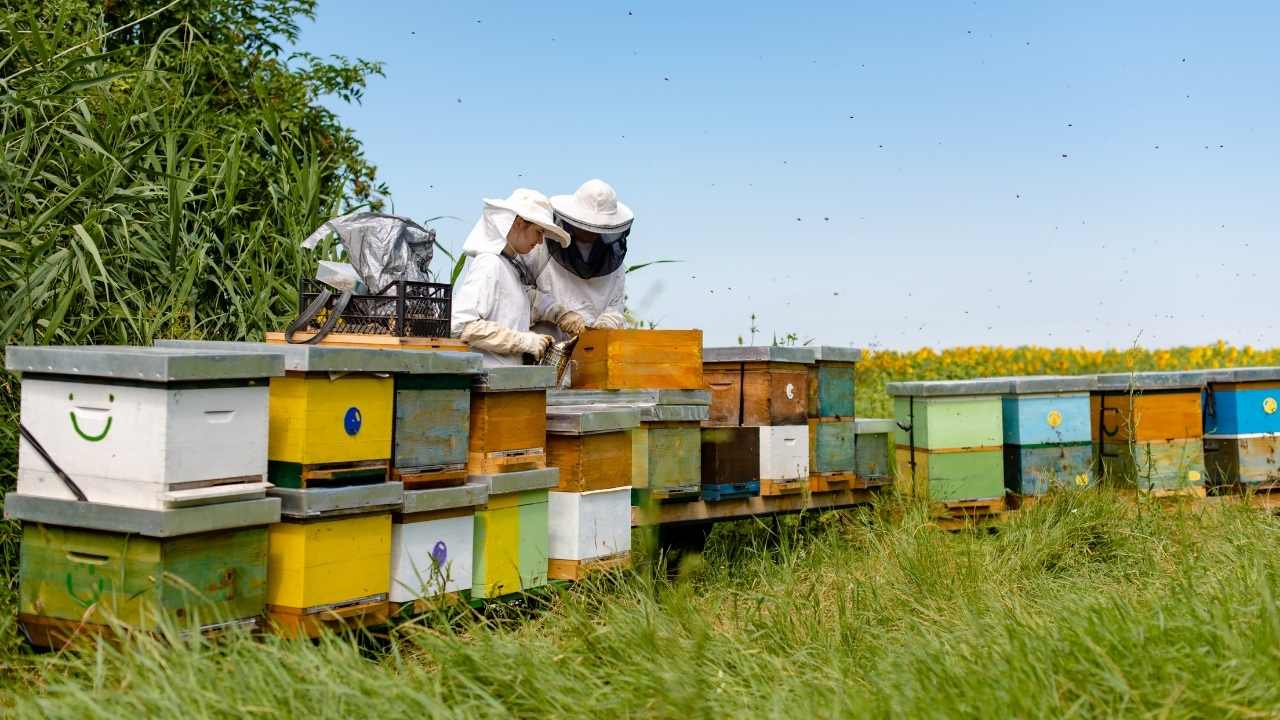
-
Sustainable Agriculture: Honeybees contribute to sustainable agriculture through their role in pollination while producing honey that can be sold or consumed locally. By supporting local beekeepers, consumers can reduce their carbon footprint by buying locally produced honey instead of imported products.
By understanding how beekeeping benefits environmental conservation, we can take steps to support this practice in our communities. One way is through community engagement and education, which we will explore further in the next section.
The Importance of Community Engagement and Education
Now that we have explored the potential impact of beekeeping on ecosystem preservation, let’s take a closer look at the importance of community engagement and education. As a beekeeper, you play an important role in ensuring the survival of not just your own bees, but also the surrounding flora and fauna. However, it takes more than just one person to make a significant difference.
Community participation is essential for promoting biodiversity through beekeeping. You can start by educating your neighbors about the benefits of having bees in their area and encouraging them to plant pollinator-friendly plants. Additionally, organizing local events like honey tastings or workshops on sustainable agriculture can help foster a sense of community and inspire others to get involved. By working together towards a common goal, we can create an environment that supports the health and well-being of both humans and wildlife alike. So don’t be afraid to reach out and engage with those around you – every small action counts when it comes to preserving our planet’s biodiversity!
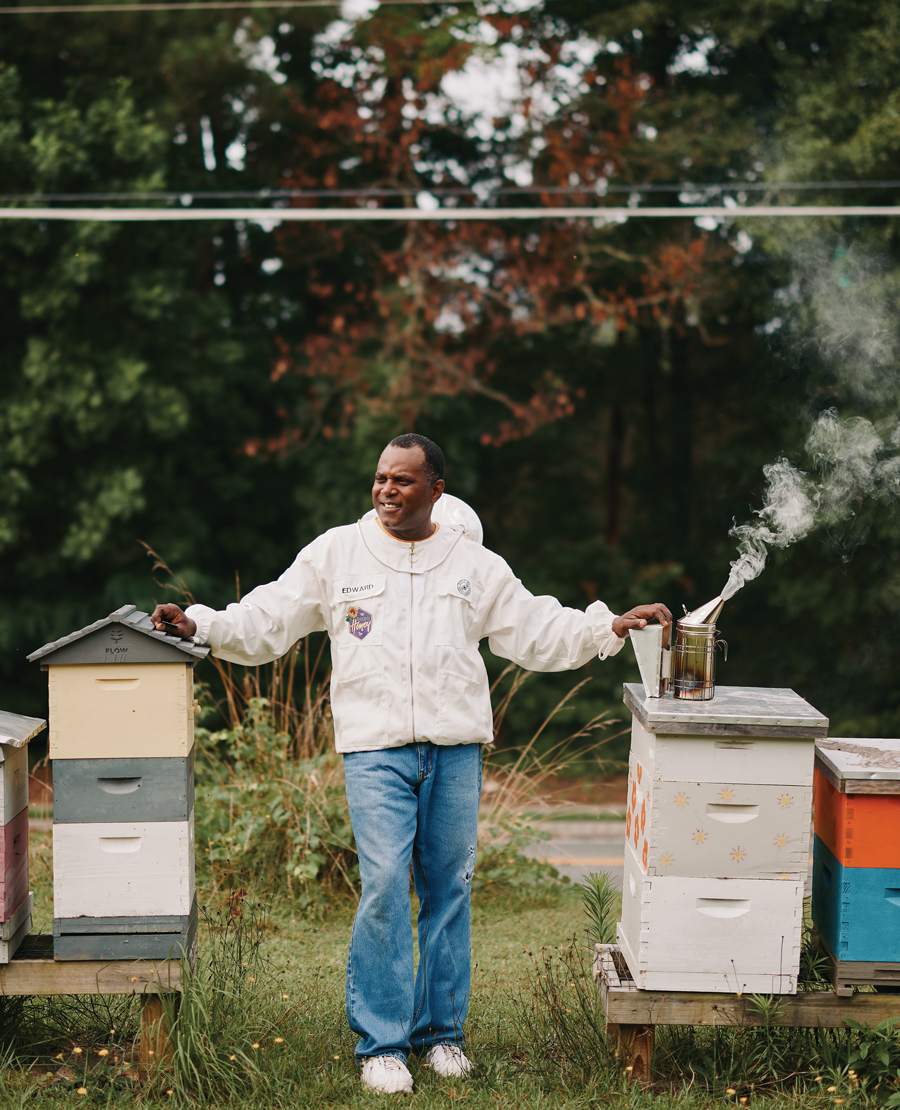
Frequently Asked Questions
How do bees communicate with each other?
Did you know that honeybees are capable of communicating with each other through a complex dance language? This fascinating behavior, known as the Honeybee Dance Language, allows bees to indicate the location of food sources to their hive mates. These dances involve precise movements and sounds that convey information about the distance and direction of the food. This communication is essential to bee survival and is a key aspect of their beehive social structure. Bees rely on this intricate system to coordinate their activities and maintain a healthy homeostasis within the hive. Understanding these behaviors is crucial for anyone interested in beekeeping or preserving ecosystems that depend on bees for pollination.
What are the different types of honey bees?
There are several different types of honey bee species, each with unique characteristics that make them important for beekeeping. The most common species used in commercial beekeeping is the Western honey bee, known for their docile nature and high honey production. Other species include the Italian honey bee, which is a popular choice for hobbyist beekeepers due to their gentle temperament, and the Carniolan honey bee, known for their hardiness and ability to adapt to different climates. Beekeeping techniques vary depending on the species being raised and the desired outcome. For example, some methods focus on increasing honey production while others prioritize pollination of crops. Regardless of the approach taken, responsible beekeeping practices are essential for maintaining healthy colonies and promoting biodiversity in ecosystems worldwide.
How do honey bees make honey?
To understand how honey bees make honey, it’s important to first understand their pollination process. Honey bees collect nectar from flowers and store it in a special stomach where enzymes break down the sugars. The nectar is then regurgitated and passed around from bee to bee until the water content reaches just below 18%. At this point, the bees cap off the cells with wax, sealing in the honey for later use. When it comes time for harvesting, beekeepers use various techniques such as smoking or brushing to calm the bees before removing frames of honey from the hive. Once extracted, the honey is strained and bottled for consumption or sale. By understanding these processes, we can appreciate not only the hard work of honey bees but also the crucial role they play in pollinating plants and preserving ecosystems.
How do pesticides affect bee populations?
Imagine a bustling city where every individual plays a crucial role in maintaining the harmony of their community. Now, imagine that this city is under attack by an invisible enemy that slowly weakens and kills its inhabitants. This is the reality for honey bees facing pesticide impacts, leading to Colony Collapse Disorder (CCD). Pesticides are chemicals used to kill pests, but they also harm beneficial insects like bees. CCD occurs when entire bee colonies die off due to exposure to pesticides, leaving behind empty hives and devastating consequences for our ecosystem. As we continue to rely on pesticides in agriculture, it’s important to recognize the impact they have on our environment and take action towards more sustainable practices that prioritize the well-being of all living beings.
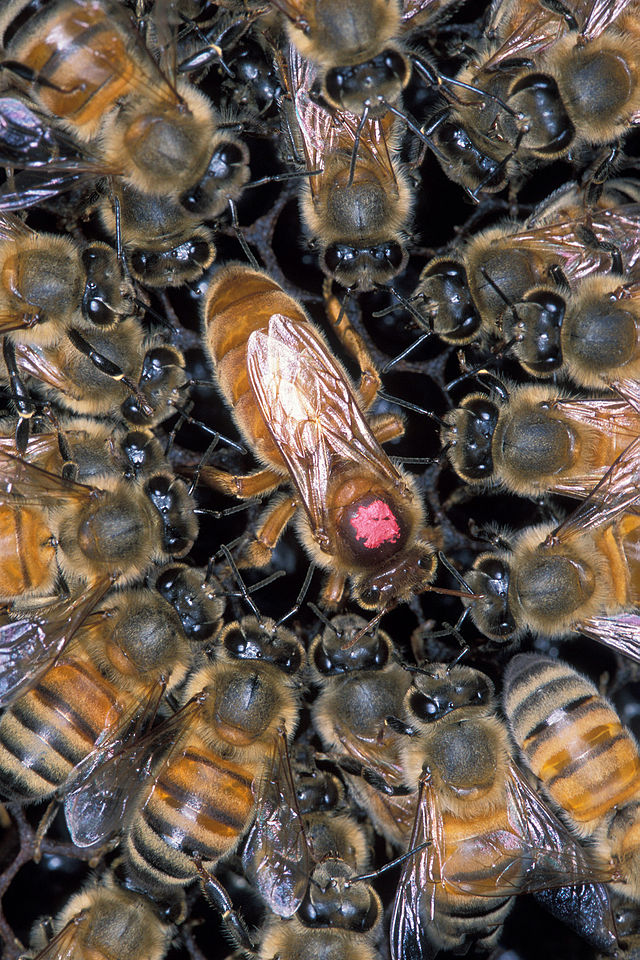
What are some alternative uses for beeswax besides making candles?
Beeswax is an incredibly versatile material that has a multitude of uses beyond just making candles. Beeswax crafts are becoming more popular as people seek sustainable alternatives to synthetic materials. Not only does beeswax have a natural, sweet scent, but it also has many benefits for the environment. Beeswax can be used in place of plastic wrap or aluminum foil, reducing waste and promoting sustainability. It can also be used in cosmetics and skincare products as a natural moisturizer and protective barrier. By using beeswax products, you are not only supporting local beekeepers but also contributing to a more eco-friendly lifestyle.
Conclusion
So, there you have it! Beekeeping is not only a rewarding hobby but also an essential practice for the preservation of our ecosystem. By promoting biodiversity and improving soil health, beekeeping can help sustain honey production while creating a more bee-friendly environment.
One real-life example of the impact of beekeeping on ecosystem preservation is the case of apple orchards in China. Farmers who introduced bees to their orchards saw a significant increase in crop yield due to pollination. This led to improved food security and increased revenue for farmers, while simultaneously preserving the local ecosystem.
In conclusion, beekeeping is an excellent way to play your part in preserving our planet’s biodiversity. By starting your own hive or supporting local beekeepers, you can make a significant contribution towards promoting sustainable practices that benefit both humans and nature alike. So why not join the buzz and get involved in this rewarding endeavor today?
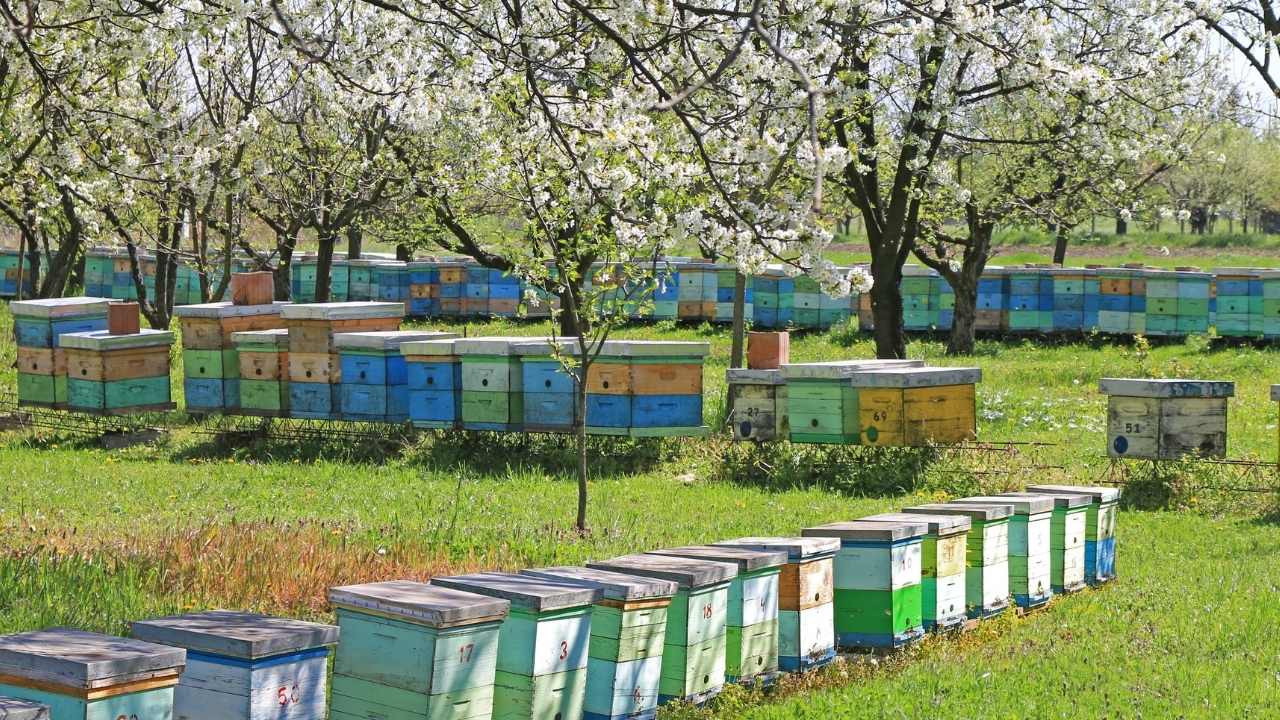

Hello! My name is Noel Calvin. I graduated from UCLA and now work as a writer at Launch Ninjas. I write blog posts that inspire and guide our readers in their entrepreneurial pursuits. I live in Pleasantville, NJ, with a peaceful yet lively atmosphere that inspires me.
Writing stories is more than just a job for me. It allows me to share my observations and satisfy my curiosity about the world. I combine my analytical skills with creative enthusiasm to delve into technology trends and startup stories. But my life isn’t limited to screens and keyboards. I value loyalty, passion, and a touch of old-fashioned charm, which I infuse into every narrative I create.
I love spending time in my garage, jamming with my band when I’m not writing. Playing the guitar and singing bring me immense joy. I also enjoy capturing ordinary and extraordinary moments through my camera lens and exploring new culinary adventures that excite my taste buds. I’m always seeking new experiences.
My family is very important to me. Joyful Sunday brunches filled with laughter and intense board game nights keep me grounded, reminding me of life’s simple pleasures.
In my world, every moment is an opportunity for discovery. Every discovery is a story worth sharing, whether a heartfelt moment at home or the pulse of technological innovations. Join me as I navigate through life, one blog post, one guitar strum, and one heartwarming family dinner at a time.
